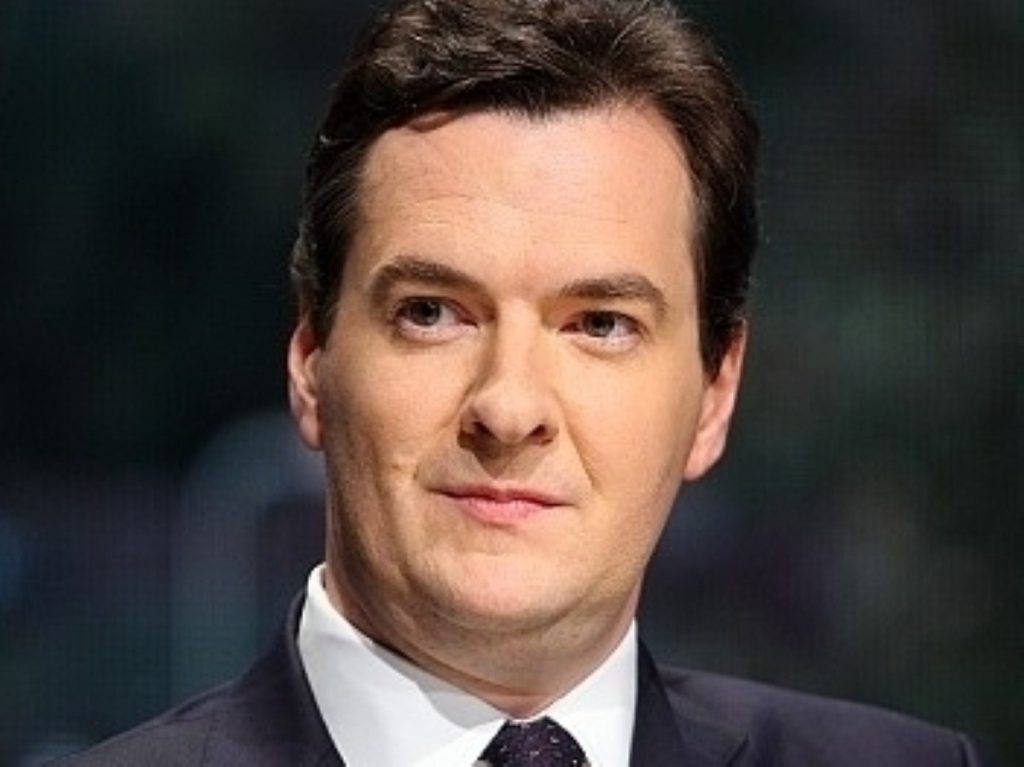Osborne tries to brighten the message
By Ian Dunt
The chancellor made a determined bid to brighten up the government’s economic message today, with a promise that it could remain progressive despite spending cuts.
In a sign that the coalition is becoming increasingly concerned at the way it is being associated almost entirely with the cuts agenda, George Osborne looked ahead to a brighter economic future while delivering a speech to City analysts in London this afternoon.
“Governments that lose control of their public finances are the least fair and less progressive,” he said.


Mr Osborne cited examples from around the world of centre-left governments implementing controversial welfare reforms and disciplined fiscal approaches to the economy.
“Successful centre right and centre left governments root themselves in the belief that governments must live within their means,” he said.
“We are shaping the economy of the future by promoting a pro-growth agenda.
Issue of the Day: Osborne speech
“We are shaping the big society of the future by decentralising power and empowering people. We are shaping the public services of the future by reforming the public sector so it delivers value for money.
“And we are shaping Britain’s future role in the world through our review of defence and security.”
Mr Osborne claimed that the way in which funds were spent was more important than the amount being spent.
“We will tackle soaring welfare bills,” he added.
“And we will refocus public spending in those areas that will make a difference to our long-term economic success.
“It is not about how much the government spends but about what the government actually does with the money.”
The chancellor could not resist attacking so-called “deficit deniers” however, saying: “Denial is the surest way to disaster.”
He branded the Labour government’s failure to stem public spending one of the greatest economic mistakes of the last 30 years nd said he “made no apology” for the “brisk” pace of reform.
Ministers are trying to agree departmental spending reductions with the Treasury in time for the autumn spending review, which will paint the most thorough picture of Britain’s short-term economic future since the emergency Budget.
Mr Osborne confirmed to the Today programme that no department had currently managed to complete its assessment, despite a leaked email revealing that the Ministry of Justice was planning to cut a figure equal to its entire prison budget.
“We’ve not settled anything with any single department. It’s very difficult,” he said.
Shadow chancellor Alistair Darling said Mr Osborne’s stint in government would be judged on his actions, not his words.
“There’s nothing ‘pro-growth’ about taking a huge gamble with the recovery – with people’s jobs. And there’s nothing ‘fair’ or ‘progressive’ about George Osborne’s Budget hitting the poorest in our society hardest,” he said.
“He doesn’t seem to understand that in government it’s decisions, not warm words, that count.”
Unions treated the speech with contempt.
“The chancellor has a different definition of fairness to the rest of us,” TUC general secretary Brendan Barber said.
“His spending cuts are hitting the most vulnerable, his one big tax rise was VAT – the unfairest tax of all – and his economic policies are bearing down on the young, trapped between unemployment and an education sector with not enough places.”









